- From Faith Current: “The Sacred Ordinary: St. Peter’s Church Hall” - May 1, 2023
- A brief (?) hiatus - April 22, 2023
- Something Happened - March 6, 2023
Filmed over the course of 12 years, Richard Linklater’s movie “Boyhood” is getting raves. Beatlefans will take particular note of the scene where a father (Ethan Hawke) gives his son (Ellar Coltrane) a mix of solo Beatles tracks, which he dubs “The Black Album.” (Please note: this is not the stupendously lo-fi Let It Be-era bootleg, which managed to bring me down within seconds of loading the video.) The fictional collection’s fictional liner notes begin, “I wanted to give you something for your birthday that money couldn’t buy, something that only a father could give a son, like a family heirloom. This is the best I could do. Apologies in advance. I present to you: THE BEATLES’ BLACK ALBUM.”
This collection is actually a version of a gift Hawke gave to his own daughter. You can read more about that, and the liner notes in toto (which immediately veer into the Mental Floss version of The Beatles, but wtf, it’s a movie), here on Buzzfeed.
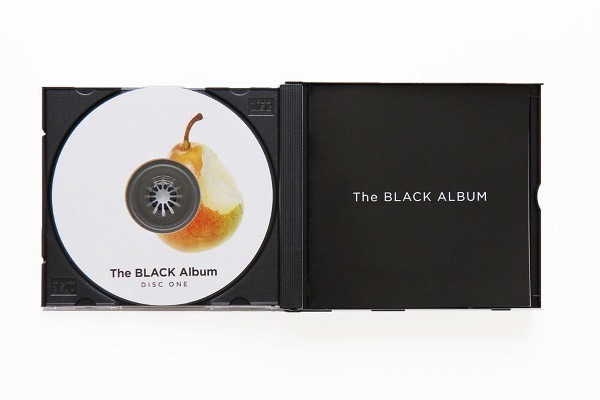
That’s a pear, but it’s a triple.
We’ve toyed with this concept before, but it’s a perennial, and I await your opinions with baited breath. It’s an exercise in sequencing, which the Beatles were wonderful at; and two of the main brains behind that particular magic are still alive and kicking: Paul McCartney and George Martin. I wonder if they might be coaxed to compile a list — say for charity?
Right off the bat: I’m blowing the whistle on “God” right before “Listen to What the Man Said”. I get the theme, but man, sonic whiplash. Also, no “Coming Up”? Nothing from George’s “Living in the Material World”? No “I’m the Greatest” or “Back Off Boogaloo”? Let’s use this as a running start at a real mix that works, eh, Dullblogisti?
1. Paul McCartney & Wings, “Band on the Run”
2. George Harrison, “My Sweet Lord”
3. John Lennon feat. The Flux Fiddlers & the Plastic Ono Band, “Jealous Guy”
4. Ringo Starr, “Photograph”
5. John Lennon, “How?”
6. Paul McCartney, “Every Night”
7. George Harrison, “Blow Away”
8. Paul McCartney, “Maybe I’m Amazed”
9. John Lennon, “Woman”
10.Paul McCartney & Wings, “Jet”
11. John Lennon, “Stand by Me”
12. Ringo Starr, “No No Song”
13. Paul McCartney, “Junk”
14. John Lennon, “Love”
15. Paul McCartney & Linda McCartney, “The Back Seat of My Car”
16. John Lennon, “Watching the Wheels”
17. John Lennon, “Mind Games”
18. Paul McCartney & Wings, “Bluebird”
19. John Lennon, “Beautiful Boy (Darling Boy)”
20. George Harrison, “What Is Life”
Disc 2:
1. John Lennon, “God”
2. Wings, “Listen to What the Man Said”
3. John Lennon, “Crippled Inside”
4. Ringo Starr, “You’re Sixteen You’re Beautiful (And You’re Mine)”
5. Paul McCartney & Wings, “Let Me Roll It”
6. John Lennon & The Plastic Ono Band, “Power to the People”
7. Paul McCartney, “Another Day”
8. George Harrison, “If Not For You (2001 Digital Remaster)”
9. John Lennon, “(Just Like) Starting Over”
10. Wings, “Let ‘Em In”
11. John Lennon, “Mother”
12. Paul McCartney & Wings, “Helen Wheels”
13. John Lennon, “I Found Out”
14. Paul McCartney & Linda McCartney, “Uncle Albert / Admiral Halsey”
15. John Lennon, Yoko Ono & The Plastic Ono Band, “Instant Karma! (We All Shine On)”
15. George Harrison, “Not Guilty (2004 Digital Remaster)”
16. Paul McCartney & Linda McCartney, “Heart of the Country”
17. John Lennon, “Oh Yoko!”
18. Wings, “Mull of Kintyre”
19. Ringo Starr, “It Don’t Come Easy”
Disc 3:
1. John Lennon, “Grow Old With Me (2010 Remaster)”
2. Wings, “Silly Love Songs”
3. The Beatles, “Real Love”
4. Paul McCartney & Wings, “My Love”
5. John Lennon, “Oh My Love”
6. George Harrison, “Give Me Love (Give Me Peace on Earth)”
7. Paul McCartney, “Pipes of Peace”
8. John Lennon, “Imagine”
9. Paul McCartney, “Here Today”
10. George Harrison, “All Things Must Pass”
11. Paul McCartney, “And I Love Her (Live on MTV Unplugged)”


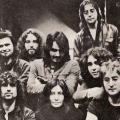
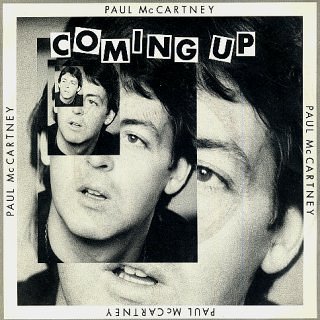
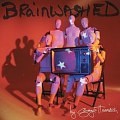

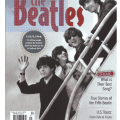
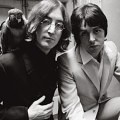
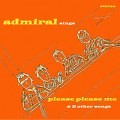

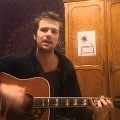
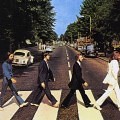
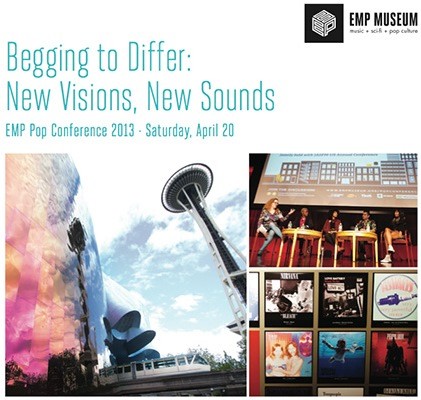
George “Don’t Let Me Wait Too Long” (bouncy magic of the best Beatle album tracks)
.
Paul “One More Kiss” (reminds me of an early Liverpool track, catchy tune)
.
Ringo “Beaucoups of Blues” (a great composition, and Ringo does it justice)
John “Bless You” (soothing chord progressions, underrated song)
BTW, folks, Joe Gross of Austin 360 publicly expects some “high-quality complaining” from Dullblog re: this tracklist. Are we going to let him down? Like fun we are. LIKE. FUN.
Me, I like to put my Beatles/Solo playlists together by year, so here, for example, is the Beatles double album they didn’t release for Christmas 1970 (absent some of George’s stuff from All Things Must Pass which bleeds onto the 1971 record because, dammit, he didn’t release an album that year; nothing off of Ringo’s Sentimental Journey or Beaucoup of Blues because I never bought them, but I include “It Don’t Come Easy” because he recorded it in 1970; and Paul’s “Another Day” because the New York sessions began in 1970).
DISC ONE
Side One
Instant Karma!
Another Day
I’d Have You Anytime
Teddy Boy
I Found Out
What Is Life
Isolation
Side Two
Momma Miss America
Remember
Love
Every Night
Hold On
Maybe I’m Amazed
All Things Must Pass
DISC TWO
Side Three
Mother
That Would Be Something
Working Class Hero
Run Of The Mill
Look At Me
Isn’t It A Pity (Version One)
Side Four
Man We Was Lonely
Oo You
Behind That Locked Door
My Sweet Lord
Junk
God
It Don’t Come Easy
By the way, back in 1977 my dad brought home the Beatles Black Album on vinyl that you linked to. Great stuff. My dad was an interesting guy. He advised my big brother to quit his summer job back in 1965 so he could see the Beatles live on his 19th birthday. “You’ll never remember the job. You’ll never forget the Beatles.” For a guy in his forties at the time, I think that’s pretty open-minded.
@Mythical, the Twickenham Sessions make me bleed from the ears, but I like this lineup you’ve got. A lot.
Going through it in my head, it feels Beatly in its beginnings and endings, it’s got good proportions, and in that Side Four sequence “Junk”–“God”–“It Don’t Come Easy.” The only thing I see immediately is that “Momma Miss America” — while a great track — isn’t a side-opener, IMHO. I’d switch it with “Maybe I’m Amazed,” so Side Two would start off with a major song with vocals, and you’d have the instrumental moving into “All Things Must Pass.” Similarly, I might do Four like this:
My Sweet Lord
Man We Was Lonely
Oo You
Behind That Locked Door
Junk
God
It Don’t Come Easy
Would that work, or do you prefer your original? Convince me!
Michael — I set up your ideas on my playlist and I’ll listen to it all the way through tomorrow, but I think you’re right. That gives you a potential single leading off all four sides, and John, Paul and George each open a side. Now all we need is a time machine to convince the Beatles to stay together and record it.
And then we make it a triple album like All Things Must Pass and then put out another double album in 1971 heavy on Ram, Imagine, the rest of All Things Must Pass and “Back Offf Boogaloo” … a very upbeat record. I smell platinum!
See how it plays, @Mythical. And then on to ’71!
The whole thing’s a bit slushy, isn’t it? What luck, then, that there’s still space on Disc 3 that can be filled with
Early 1970
Back Off Boogaloo
Cold Turkey
I Don’t Wanna Be a Soldier Mama
Whatever Gets You Thru the Night
Wah-Wah
Bangla Desh
Maya Love
Oh Woman Oh Why
Hi Hi Hi
Girls School
“Slushy” is a great word for the Hawke set, @Velvet. Not enough tough McCartney in it. What do you think of @Mythical’s 1970 lineup?
I like it (both in idea and execution – nice distribution of Harrisongs), understand the impulse to create fantasy post-69 albums, and will admit to having hypothetical Beatles LPs from 1970, 71, 73 and 75 in my Music File-Playing Desktop Application Of Choice that I play a lot. Can’t see them releasing a double in 70, though – in my own private Dreamland of Fab, that has to wait until 71 (“Long-Haired Lady”! Yeah!). 🙂
Is it too OCD-y to insist on having one Ringo vocal per LP (as established in 68)?
OK @Velvet, I demand you spill your playlists.
I’m hoping to use the Dullblog Hive Mind to create Beatle solo discs. I like @Mythical’s double album, but would love to see single ideas as well. I think you could definitely have them releasing two LPs a year until 1975.
Well, you asked for it… 🙂
1970
A: I’d Have You Anytime / Another Day / Remember / Early 1970 / Every Night / Ballad of Sir Frankie Crisp (Let It Roll) / Isolation
B: Love / Maybe I’m Amazed / Apple Scruffs / Gimme Some Truth / Oh Woman, Oh Why / Behind That Locked Door / It Don’t Come Easy
1971
A: Imagine / Dear Boy / All Things Must Pass / Jealous Guy / Little Lamb Dragonfly / Ram On
B: Beware of Darkness / Oh My Love / How? / Long Haired Lady / Isn’t It a Pity (version 2)
C: Get On the Right Thing / Back Off Boogaloo / Crippled Inside / Wah-Wah / Heart of the Country / Oh Yoko!
D: Bangla Desh / It’s So Hard / Tomorrow / Eat At Home / I Don’t Wanna Be a Soldier Mama I Don’t Wanna Die / I Live For You
1973
A: I’m the Greatest / Hi Hi Hi / The Lord Loves the One (That Loves the Lord) / Out the Blue / Country Dreamer / Don’t Let Me Wait Too Long / Bring On the Lucie (Freda Peeple)
B: Big Barn Bed / One Day (At a Time) / Be Here Now / I Know (I Know) / One More Kiss / Six o’Clock / Miss O’Dell
1975
A: Here We Go Again / The Answer’s At the End / Love In Song / Scared / Let Me Roll It
B: You / What You Got / Listen to What the Man Said / #9 Dream / Nineteen Hundred and Eighty Five / Goodnight Vienna
Left out most of the obvious infighting stuff („God“, „Too Many People“, „How Do You Sleep“, „Sue Me Sue You Blues“ etc), but left in a few examples of good-natured self-referencing („Oh Yoko!“, „Early 1970“, „Apple Scruffs“). Also tried to minimize guest star appearances (hence no Elton, only very little Linda). „Give Me Love“’s not on the 73 album because it didn’t seem to fit in anywhere and I like „Miss O’Dell“ better anyway. The 75 one’s mostly made up of songs from the previous 2 years that seemed to go well together because they’re all kind of bombastic. Should maybe have let Paul have a few more side-starters, but maybe he’s just not as good at those as John & George who tended to go for The Big Statement in their solo music…?
Single ideas:
1970
Instant Karma! // Junk
What Is Life // Man We Was Lonely
1971
The Back Seat of My Car // Working Class Hero
Bangla Desh // Power to the People
1972
New York City // Some People Never Know
My Love // Deep Blue
1973
Give Me Love (Give Me Peace On Earth) // Mind Games (double A!)
Live and Let Die // Meat City
Photograph // You and Me (Babe) (the Ringo Christmas single!)
1974
Nobody Loves You (When You’re Down and Out) // Bluebird
Jet // Ding Dong, Ding Dong (double A!)
1975
Venus and Mars/Rock Show // Steel and Glass
Stand By Me (John) / Slippin’ and Slidin’ (Paul) // Be-Bop-a-Lula (George) / Just Because (Ringo) – the Christmas Rock’n’Roll EP!
It’s great that Ethan Hawke is drawing attention to the Beatles’ solo work in this way, and there’s obviously no arguing with the sentiment that it would have been wonderful if the breakup could have been healed, at least partially. Preach it, brother. Yet another reason for me to get out and see this film pronto.
Yet I have to confess I’m just not that into making mixes of the Beatles’ solo work in this way, despite having read two books on the subject. I’m therefore going to confine myself to saying that if you’re going to put “God” in the mix you need either “Too Many People” or “Smile Away” to balance it, and that “Back Off Boogaloo” and “Blow Away” belong on the compilation. And I’d delete “Pipes of Peace” (which I loathe) and replace it with either “Somedays” or “Calico Skies.”
As for Hawke’s liner notes, overall they’re quite winning. However (of course, of course) a couple things bug me. Some people say McCartney was “a snot who bought the publishing rights out from under the other three”? Well, he did buy rights out from under John, which I agree was reprehensible. However, John was on heroin at the time and not behaving so responsibly, so it’s at least complicated. And If you’re going to talk about the breakup you simply have to talk about Allen Klein’s role, IMO.
I’m also puzzled by Hawke’s statement that “when Paul went on SNL recently, he played almost all LENNON. And he did it with obvious joy.” When was that? I went looking, and in 2010 he played “Jet,” “Band on the Run,” “A Day in the Life / Give Peace a Chance,” and “Get Back.” In 2012 it was “My Valentine,” “Cut Me Some Slack” (with the surviving members of Nirvana), “Wonderful Christmastime,” “Birthday,” and “Get Back.” Other than “A Day in the Life / Give Peace a Chance,” there’s no “Lennon” there.
Perhaps proof that when we look at or listen to the Beatles (or former Beatles) we see or hear what we want to.
Nancy, the Beatles are so omnipresent that everybody feels like an expert. Which is fine, but speaking personally my enjoyment of the group has grown immeasurably since I dropped the Conventional Wisdom regarding them. Mistakes breed mistakes; invariably the same people who believe that Lennon was the sole genius in the group, also believe that Ringo won the lottery.
For me, the bittersweet fun of these mixes is thinking, “And how good would that song have been if there were three (or two, or one) other Beatle(s) on it!”
Michael, what actually bugged me about the two things in the liner notes that I mentioned was the lazy inaccuracy of them. It’s not that I expect everyone who publishes something Beatles-related to have the same level of geeky think-too-much-about-them that we at HD do, but it’s a shame to propagate things that are just plain wrong when it’s so easy to check the facts.
Since it was the Lennon/McCartney songwriting rights that were in question, it makes no sense to talk about McCartney trying to buy the rights from under “the other three.” If you want to talk about McCartney vs. the other three I’d say it’s either his refusal to sign the Klein contract or his decision to sue to get the breakup legally recognized.
When I read the part about McCartney playing “almost all Lennon” on SNL, I thought “Wow! I don’t remember that — that’s really interesting.” A couple of minutes with Google revealed that such an SNL show didn’t happen. Maybe Hawke’s thinking of some other venue and setlist, but I have no idea what it would be. Even if you count songs credited to Lennon/McCartney but primarily written by John, I don’t know of a time when McCartney’s played a set with more than 25 percent Lennon songs (as in the SNL 2010 set).
I get that the main point Hawke is making in the liner notes is emotional, and that he’s not aspiring to a Lewisohnian precision. But such inaccuracies still bother me, because they help convince people that things that didn’t happen did.
“inaccuracies still bother me, because they help convince people that things that didn’t happen did.”
Agreed, Nancy. It’s not trainspottery to expect someone who likes the group enough to make such a mix (and make it well, quibbles aside), to learn the real history of the group. But you see, this is where people like Philip Norman really do have an impact; Ethan Hawke is 43, so I’d expect Shout! made as big an impression on him as it did me. If you read that in 1982, and hadn’t read much since, you could very easily write things like he did. John the angry genius; Paul the simpering songster; George the dour ascetic; Ringo the lottery-winner.
And the problem with such inaccuracies, for me, isn’t that they lack Lewisohnian precision; every post I’ve ever made on HD lacks that. It’s that they propagate a profoundly diminishing conventional wisdom that makes the actual history harder to see. Which is how Hawke can default to the idea that Paul is the sentimental one when “Woman,” “Beautiful Boy,” and “Grow Old With Me” — three of the most sentimental songs ever put down on tape — are on his playlist!
(Man, you are depressing me when I think of “Shout!” as being that influential!)
Differences of interpretation are one thing (I say this song is moving, you say it’s sentimental; I say to-may-toe, you say to-mah-toe) –they’re all to the good, and make life interesting. It’s getting the FACTS wrong that bothers me. I majored in journalism in college, and I’ve never gotten over the sense that writers owe it to readers to check the facts before committing them to (actual or virtual) paper.
So I give Ethan Hawke props for setting up such a good playlist, and for the emotional content of his writing about the Beatles’ breakup. And I actually think his take on it is reasonably even-handed, at least compared to some others.
But when it comes to talking about what things actually happened, I’m with Joe Friday: “Just the facts!”
I’d hardly say “he bought the publishing rights right out from the other three”. Wow that’s an exaggeration of mammoth proportions. I was actually reading this recently on a discussion board, where someone did some research on this. I’m pretty hopeless at remembering the actual details she came up with but if I remember correctly, McCartney’s extra shares amounted to such a small percentage it worked out to an extra $20 a year, or something like that. And again, if I remember correctly, the only reason it was more than Lennon’s and therefore extra, was because John had given Julian some of his shares in the divorce settlement. I mean,”he bought the publishing rights right out from the other three”…that just amazes me. It’s funny to me that no one ever mentions the underhanded things the others did during that period…things that actually did happen and were not exaggerated. And as we all know, neither McCartney or the estate of John Lennon owns the publishing rights now, so McCartney buying “the publishing rights right out from the other three”, didn’t seem to do him much good. Oh but maybe Sony and the Jackson family let him keep that extra $20.
Yeah, @linda, it’s all part of this “McCartney as conniver” meme that Lennon put out whenever the Thai Stick hit him wrong. While it was a really terrible idea — Lennon reacted with entirely predictable rage — what Paul was doing wasn’t illegal. If people are mad that John Lennon (and Estate) didn’t own his own publishing rights, they should be mad at John himself for the “fat arses” comment; that’s what scotched the bid to buy the catalog. If John hadn’t been utterly off his nut in 1968-1971, not only would’ve J&P been likely to get their rights, the whole Allen Klein affair (and lawsuit) would’ve been avoided. Paul can’t win; if he acts like a grownup, he’s a square; and if he doesn’t, John reenacts the drama playing in his head: “those businessmen are all out to get me.” Which he made happen the moment Brian died, with Allen Klein. This was John’s right, but it wasn’t his right to take Paul and the others along with him.
I saw the post on this Northern shares situation that Linda mentions. Someone sent it to me via Facebook but the original post was on a a Web site called “Johnheartpaul” on live journal that is basically a john/paul slash site (not my thing but whatever). Anyway, this particular post was some excellent research someone had done on the Northern shares situation. I can’t post a link here so I’ll quickly summarize/quote.
When John and Paul sold their Northern shares to a company called ATV, Paul had 751,000 shares and John had 650,000. I’m sure that led Beatles writers who didn’t do their homework to say Paul was “underhanded” in buying extra shares. But this person did the legwork and found that John had so many fewer shares because he had had to sell 100,000 shares that Cynthia received as part of their divorce settlement. John had had 750,000 too but lost 100,000 to the divorce, leaving him with 650,000.
Paul had 751,000. So those “extra shares” that Paul bought supposedly so “underhandedly”? That amounted to a mere 1,000 shares — that was a one time, incidental purchase that was worth .002 of a single percent of the shares available in the whole company.
To quote from this research: ” It was a miniscule amount, it would have cost well under 1,000 pounds and in the event of a 100,000 dividend being paid it would have meant Paul would receive an additional 20 pounds. The purchase was not commercially or financially important, it plays no part in the Northern Song story. Literally 99% of the difference between John and Paul’s holdings at the time of disposal and sale to ATV was due to JOHN selling shares, not due to Paul acquiring them. I think the story about the shares is interesting from the point of view of understanding how Klein played them off against each other. It is a good example of him acting to drive a wedge between Paul and John, divide and conquer etc. It is a shame that John was suffering the paranoia associated with heroin addiction and was very susceptible to being manipulated in this way, at that time.”
The real crime here is how countless Beatles books made no effort to look at the actual numbers and what they meant, and instead assumed that the 100,000 difference in Paul and John’s shares was due to Paul’s conniving rather than what it was really due to: John’s divorce settlement.
Great find, @Drew. It’s great to get to the nitty-gritty on it. If you send me the link, I can put it in your comment easily.
I’ve always felt it was very strange that Paul — who wanted the Beatles to continue, without any reservations — would antagonize Lennon in this obvious way. If it’s only 1,000 shares it makes more sense; he could legitimately think John wouldn’t have cared. I suspect what Lennon was really pissed about was having to unload 100K to divorce Cynthia. Remember, he wanted to pin Cynthia with adultery (the married Beatle accusing anybody of adultery is…amusing) presumably to give her less.
@Hologram Sam and I mentioned in a recent thread how much we both like the Lennon of ’66 and ’67. I must admit that I really don’t like the Lennon of ’68 to ’71. That guy’s a sociopath (def: “a person with a personality disorder manifesting itself in extreme antisocial attitudes and behavior and a lack of conscience”) who also writes the occasional great rock song. And he looks particularly bad next to Paul and George — or the John of just a year earlier — who also write great rock songs, without the incredible cost to everybody around them.
Is this particular blind spot — on the reason John owned fewer shares — related to how Beatle authors must overlook so much of John’s behavior in this period? I think so, yeah. How could it not be? If you love the Beatles (certainly if you love them enough to write a book about them), you can’t but love John Lennon — and so it’s natural not to look so closely when he’s being a sociopath. Especially since he provided a much more appealing ready-made narrative.
Ethan Hawke’s Take on the Post-Beatles
Ethan Hawke gives an Oscar-winning performance in a likely Best-Picture-winning movie, but the best of the post-Beatles that his character compiles for The Black Album does not do justice to John, Paul, George and Ringo.
Hawke’s remarks in a note to his son about the flaws of each Beatle individually ring true. John’s self-involvement eventually wears thin, as does Paul’s penchant for sentimentality, and George’s obsession with spirituality. However, “he can’t sing” as a tag for Ringo–the singer on Beatles classics including ‘Yellow Submarine’, ‘With a Little Help From My Friends’ and ‘Octopus’s Garden’–is just a hackneyed putdown. Certainly in a recording studio, where a singer gets multiple cracks at getting each phase just right, Ringo can come off as well as Sinatra, within a narrower range to be sure. His voice on CD has actually improved over the decades, as it has deepened. And especially on his last several albums, contra Hawke, you can “go home and crank up a Ringo Starr album start to finish…” “[Y]ou’re just not gonna do that,” Hawke insists. The hell you’re not.
But I do grant Hawke’s overall point, that when you juxtapose the tracks of all four, “they elevate each other.” Indeed they do, which was why I wrote a book called Let’s Put the Beatles Back Together Again 1970-2010 four years ago, on how you can thereby create several terrific post-Beatles CD-sets, including an intial set, which I dubbed Black Box aka ‘The Black Album’.
As for John’s ‘Life Begins at 40’ not making the cut because the irony involved is murderous, well, it was just a rough demo that he might have done further work on and as such it’s just not very good. Then Hawke goes on to completely mischaracterize the rift between John and Paul. “[T]ell me again why love can’t last. Why do we give in to pettiness? Why did they?” Etc. The thing is, Ethan, the entire span of their rift was about 21 months. They loved each other dearly, but the pressures they came under would have done in almost any friendship. But not theirs. Because of the depth of that love, they repaired their relationship, which once again became solid, if intermittent, from 1972 through 1980. I would maintain that it was one of the great male friendships of the 20th century, and with just an ounce of support from Yoko, the two would have worked together again, no question.
More Hawke flubs: No, John did not carry a switchblade around in his pocket. No, he did not punch anyone at a memorial for his recently-deceased mum. No, Paul was not several years younger than John. The age gap was only 2 ¼ years. No, “badassness” was not an entrance requirement for the Quarry Men. Contra Hawke, Paul was already involved with girls at the time and was already cool, for a 15-year-old. No, Paul never chased John out onto the street at that memorial for Julia, saying “John, why are you being such a jerk?” No, the whole scene of them exchanging confidences re. their dead mums, followed by an embrace on the street, never happened; John knew about Paul’s mother’s death long before. And John certainly didn’t cap off this bogus tear-jerker of a scene with, “Can we please start a rock’n’ roll band?” Good grief, they’d already been playing in the Quarry Men together for the better part of a year, and it was a skiffle band then, not a rock’n’ roll band.
Apparently when the boys were 25, they had had little beyond “a gaggle of babes outside their hotel room” by way of romantic experience. Is Hawke kidding? All were married or in long-term relationships by that age, and had had a plethora of relationships and flings on the side. So they had plenty of life experience to inform their lyrics. No mystery there. Did they write substantively because, as Hawke has it, “they were in pain. They knew that love does not last. They knew it as extremely young men.” Hooey! At 25, each was involved in the first great love of his life, a love they all expected to last, even John at that point. And did they start writing about “adult life” subjects like “marriage, fatherhood, sobriety, spiritual yearning, [and] the emptiness of material success” only in the 1970s? Hardly. Granted, with more life experience comes more sophistication in one’s lyrics, but the four boys didn’t have to wait for their 30s to start writing about long-term relationships and marriage, or of other great disappointments in life. John and Ringo had kids by the mid-1960s for heaven sake. (And no, Ethan, the boys were never champagne drinkers.)
Hawke writes, “If you’re a romantic like me, it’s hard not to long for some indication of healing between [John and Paul].” And such indications are not hard to find. Ethan, they were all healed up by the end of 1971. They saw each other off and on for the next 4 1/3rd years, despite living on different sides of the Atlantic. They hung out sometimes. Even after immersing himself in raising Sean and despite Yoko’s disapproval, John continued to talk with Paul on the phone from time to time. By John’s death the two had drifted apart somewhat but their friendship was intact and awaiting a bona fide renewal. It was George whom John was at odds with in 1980, and George who would regret that the matter lay unresolved on December 8th.
“Some say that Paul, the pupil, had surpassed John, the mentor,” Hawke relates. But John was never Paul’s mentor. As a key member of the band, Paul was John’s musical equal from day one. “Some say Paul was a little snot who bought the publishing rights out from underneath the other three,” he informs us. But this sentence has no referent to reality. Nor had Brian Epstein been serving as a mediator between John and Paul’s egos in the year before his death. By then the boys were working exclusively in the recording studio, where Brian was absent.
No, Brian Epstein did not decide what went out as a single, and what track merited the A side. These were collective decisions, including George and Ringo and even George Martin. Hawke’s account of John’s ‘Revolution’ being out-voted in favor of Paul’s ‘Hey Jude’ as the A side is fantasy. Lennon immediately acknowledged ‘Hey Jude’ as the best thing Paul had ever written; of course it would be the A side. The combination made for the greatest single in the history of pop music. John was pleased, not peeved. Yes, it’s true that the new single upstaged the Rolling Stones’ Beggar’s Banquet at Mick Jagger’s birthday bash, but Paul was the lone Beatle in attendance. No other account I’ve read indicates that side two of Beggar’s Banquet remained unplayed at the event. That seems hardly likely.
As for John’s comment about the prospect of playing with Paul again: “It would always be about, ‘Play what?’ It’s about the music. We play well together—if he needed me, I’d be interested.” Where does Hawke get this? In the many thousands of pages about the Beatles that I’ve read over the years, I’ve never laid eyes on this quote. If legit, it’s a good one. But it’s hardly unique in proposing a musical reunion given the right conditions. There are several such musings on John’s part, as there are on Paul’s part, not to mention George’s. All that a Beatles reunion required was an OK on Yoko’s part, but she never gave it—until John was dead.
For Hawke, the moral is that even if love doesn’t last, the music love generates can. Just as his character’s marriage in the movie didn’t last but the father-son relationship that emerged from it, like the music produced by a defunct band, does. It’s a touching thought in the context of the film, but the parallel with Lennon/McCartney is invalid. Absent an assassin and one overly-possessive/ambitious spouse, John and Paul would inevitably have collaborated again. Those two continued to have a real love for each other. Despite its hiatus during 1970-1971, and despite what Hawke implies, it was never over.
As for Hawke’s 50 track Black Album playlist, he utterly disqualifies himself as a guide to the post-Beatles by including on a would-be Beatles album-set: ‘Silly Love Songs’, ‘Pipes of Peace’ and ‘Listen to What the Man Said’. These would suit a Mac compilation of some sort, but it’s impossible to imagine John and George okaying the inclusion of these very non-Beatle-ish tracks on a collective release that all four would have had to stand behind. Another 14 of Hawke’s selections should have been pre-empted by much better material, which is abundant.
Hawke has done the post-Beatles works a big favor by inserting a would-be post-1970 Beatles compilation into what is truly a landmark film. While Hawke’s performance in the film is masterful, his Black Album selections leave a lot to be desired. But I suppose that’s half the fun—razzing many of the picks of the professed guide and substituting one’s own. At least Hawke has drawn attention to the desirability of conducting such an exercise in the first place. For that, all we post-Beatles fans owe Ethan Hawke a big thank-you.
Great comment, @Jeff — comment more!